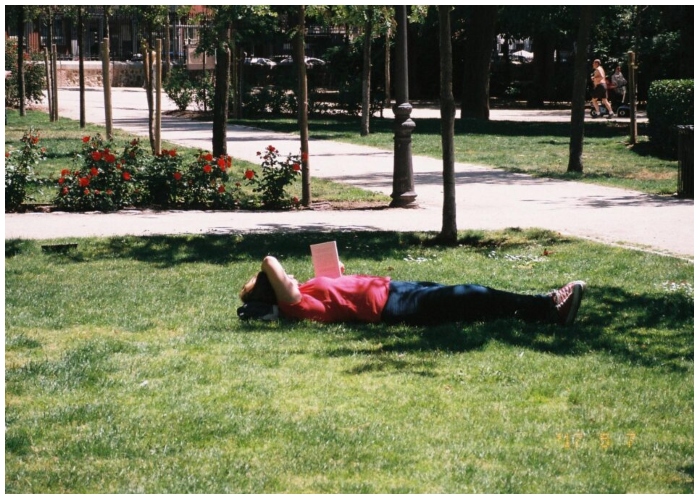In a society that constantly equates busyness with success and popularity with worth, choosing to be alone can feel like a rebellion. But in 2025, more people are stepping into solitude—on purpose. This isn’t loneliness as a symptom of isolation or neglect; it’s intentional loneliness, a form of self-preservation, clarity, and inner peace. People are no longer viewing solitude as something to escape—they’re seeing it as something to embrace. It’s a quiet movement gaining momentum, challenging the narrative that social interaction must always be constant and that silence equals sadness. Instead, it’s becoming a tool for healing, recalibration, and living life on one’s own terms.
Choosing Stillness Over Stimulation
We’re living in an era where overstimulation is the default. Our senses are flooded with content, noise, obligations, and endless social interactions—many of which are draining rather than nourishing. Intentional loneliness is a conscious response to this overwhelm. It’s the decision to pull back, even just temporarily, to reclaim a sense of internal stillness that’s nearly impossible to find in a hyper-connected world. For some, it means spending weekends alone. For others, it’s declining social invites that don’t serve them. In both cases, the goal isn’t to disconnect from life, but to reconnect with themselves on a deeper level.
Reclaiming the Narrative
Loneliness has long carried a negative stigma. It’s been treated as something to be fixed, avoided, or pitied. But the growing wave of people choosing solitude is flipping that narrative. They’re not lonely because no one wants them around—they’re alone because they’ve realized how valuable their energy and time are. They’re redefining solitude as strength, not shame. In that space, they’re able to think clearly, dream boldly, and feel without a filter. They’re rewriting what it means to be fulfilled—and discovering that it doesn’t always involve other people.
Detoxing from Digital Closeness
There’s a growing awareness that digital closeness isn’t the same as emotional connection.

Likes, comments, DMs, and group chats may give the illusion of intimacy, but more often than not, they leave people feeling hollow. Intentional loneliness offers a chance to step away from the illusion and seek something more grounded. It’s about closing the apps, silencing the notifications, and realizing that being liked online doesn’t mean being known in real life. That clarity often leads to more honest relationships and deeper inner peace.
The Rise of the “Soft Ghost”
A subtler social shift has been taking shape as more people begin to “soft ghost” their networks—not dramatically cutting ties, but quietly backing away from the noise. They leave group chats unread, decline social outings, and take longer to respond. It’s not because they’re rude or uninterested—it’s because they’re tired. Tired of surface-level conversations, emotional labor, and feeling stretched too thin. These slow exits aren’t about burning bridges; they’re about closing the gates temporarily to find rest within themselves.
Space to Process, Not Just Produce
In a productivity-obsessed culture, even emotions are rushed. You’re expected to “bounce back,” “stay positive,” and “keep moving.” But intentional loneliness creates space to feel without performance. You can grieve slowly, reflect deeply, or simply be still without having to update anyone. It’s a sacred pause where processing becomes the priority instead of production. And in that pause, people often discover truths they’d been too busy—or too distracted—to notice before.
Breaking Free from FOMO
Fear of missing out has ruled social behavior for over a decade, encouraging people to say yes to things they don’t want to do, just to avoid being left out. But 2025 is seeing a new trend: JOMO—the joy of missing out. People are realizing they’re not missing anything that truly matters by staying in, resting, or spending time alone. They’re choosing their peace over parties, depth over performance. And in that choice, they’re not shrinking their lives—they’re making room for more meaningful experiences.
Embracing Emotional Minimalism
As people begin to choose solitude more often, they’re also reassessing their emotional environments. Emotional minimalism is the idea that not everyone needs access to your thoughts, time, or heart. It’s about being selective with who you share your energy with and recognizing that fewer, deeper connections often bring more fulfillment than a wide web of superficial ones. This doesn’t mean becoming cold or closed off—it means becoming intentional, which in today’s world feels like a revolution in itself.
A Shift in Social Currency
Social capital has long been tied to how many friends you have, how busy your calendar looks, or how socially visible you are. But the silent rebellion of intentional loneliness is questioning that currency. Instead of asking, “How many people want to be around me?” people are asking, “Do I enjoy being around myself?” That shift changes everything. It allows people to let go of the need for validation and instead invest in authenticity. And that trade-off, while invisible to others, feels priceless to those living it.
Redefining Connection
Solitude doesn’t mean the absence of connection—it often means the improvement of it. By creating space from others, people learn to show up more honestly when they do choose to engage. The connections they maintain become more deliberate, rooted in mutual respect rather than social obligation. They’re no longer performing connection—they’re choosing it. And that makes every interaction feel more real, more rewarding, and far less draining.
When Loneliness Becomes Empowerment
Perhaps the most profound shift is the realization that being alone doesn’t mean being lesser. It can mean being free. Free from expectations, free from emotional exhaustion, free from the pressure to always be “on.” Intentional loneliness empowers people to discover what they truly want—not what they’ve been told to want. It creates space to grow, heal, explore, and breathe. And in a culture that constantly demands more, doing less becomes a radical act of self-trust.